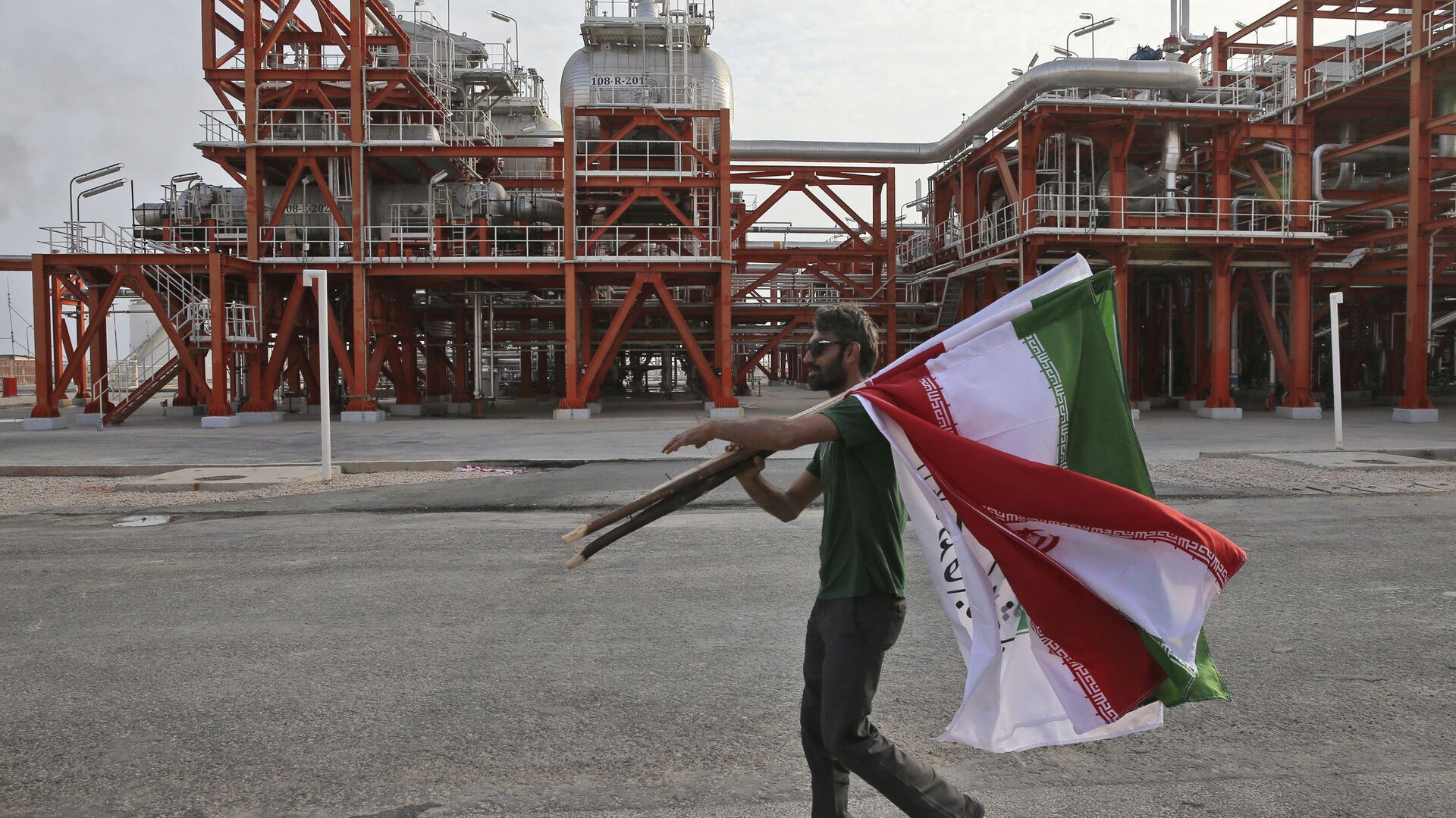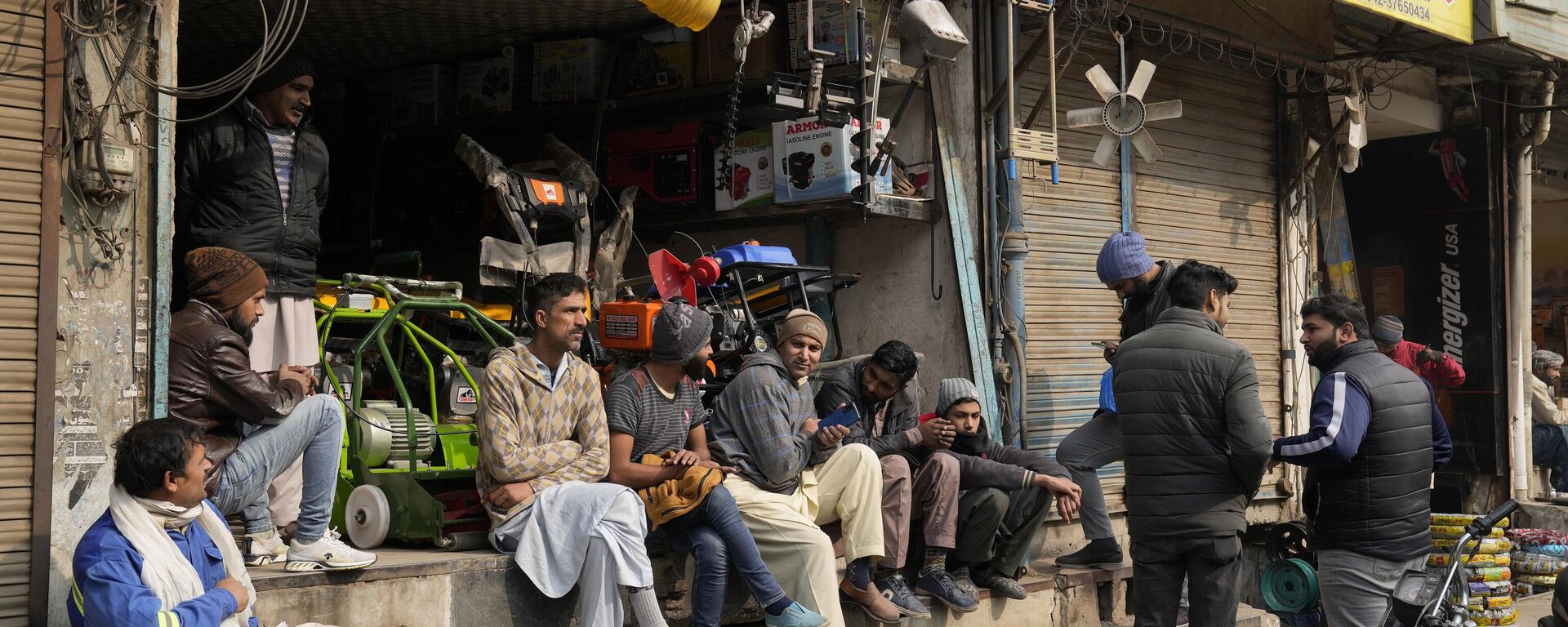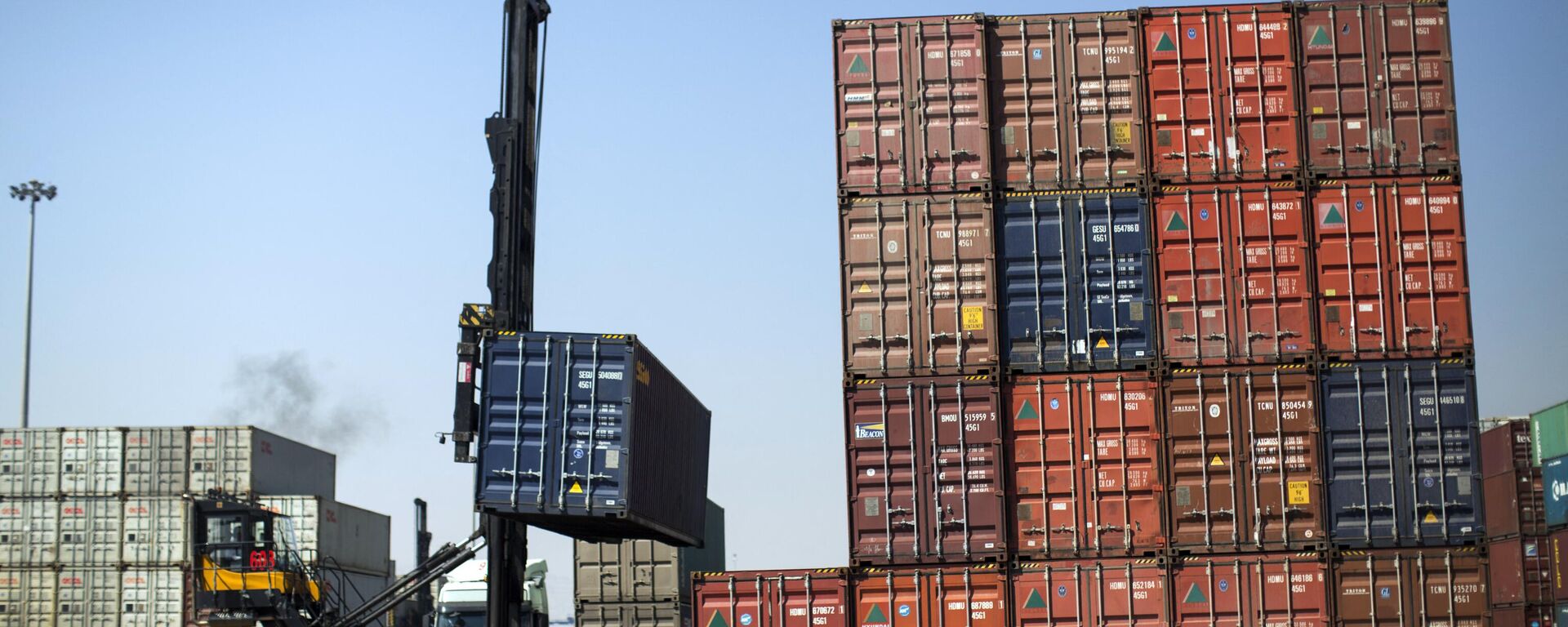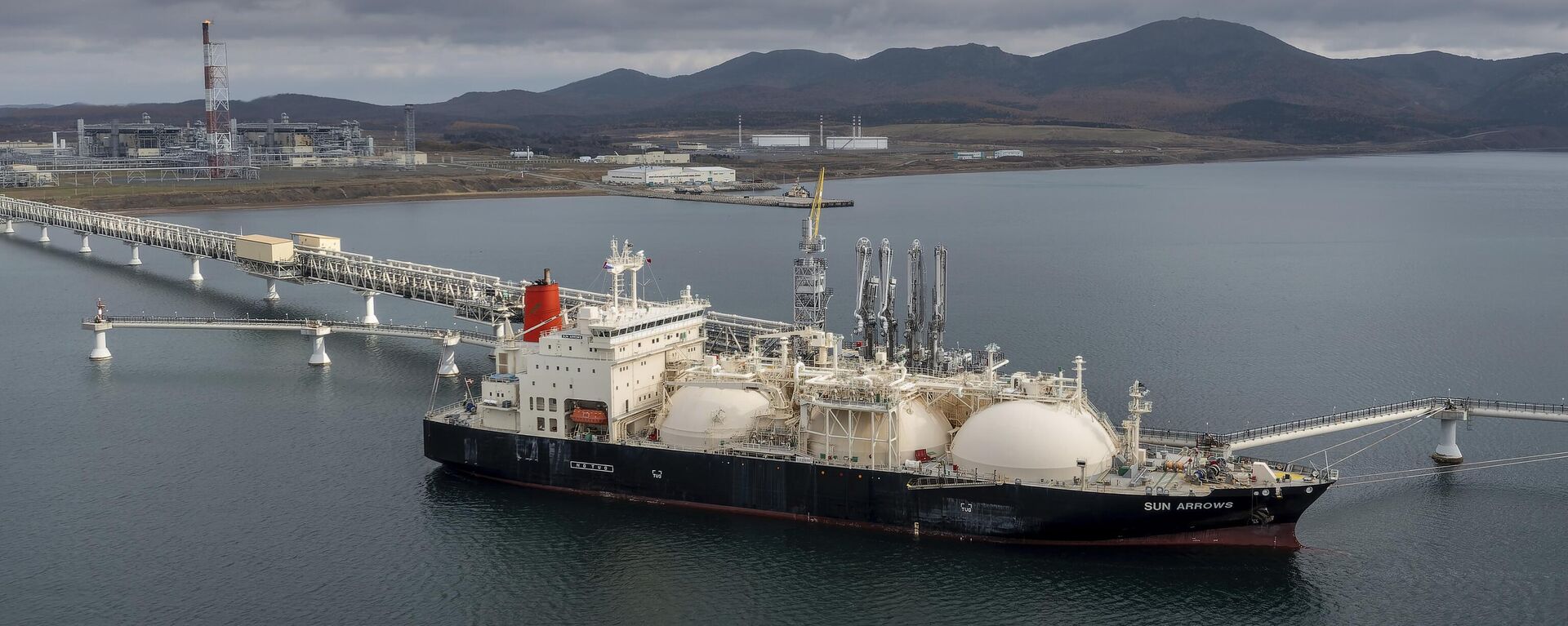https://sputniknews.in/20230201/how-iran-and-pakistan-are-boosting-ties-amid-global-geopolitical-tensions-710011.html
How Iran and Pakistan are Boosting Ties Amid Global Geopolitical Tensions
How Iran and Pakistan are Boosting Ties Amid Global Geopolitical Tensions
Sputnik India
Despite the rapidly changing geopolitics and challenges posed by the rising threat of terrorism and US sanctions on Tehran, the two countries have maintained... 01.02.2023, Sputnik India
2023-02-01T12:21+0530
2023-02-01T12:21+0530
2023-02-01T12:21+0530
world news
pakistan
iran
business
military training
https://cdn1.img.sputniknews.in/img/07e7/02/01/713999_0:161:3071:1888_1920x0_80_0_0_04b16beb88ee23551bafe7ccbd1cfcb9.jpg
This January, Pakistan and Iran signed 39 memorandums of understanding (MoU) after a two-day border trade committee meeting which was focused on enhancing business relations.Tehran and Islamabad had also taken several steps to improve energy cooperation in recent months amid Pakistan experiencing a gas and petroleum products shortage.In terms of military cooperation, both countries have been working together to secure their borders and prevent any potential threats. Iran has provided Pakistan with military training and equipment, while Pakistan has sent its military personnel to Iran for training.Furthermore, the two countries have conducted joint military exercises, which have enhanced their military capabilities. This increased cooperation between their military forces has helped to increase the stability and security of both countries.Trade Agreements & Economic TiesWhen it comes to trade, the two countries have made significant progress in improving their economic ties. Pakistan and Iran have signed various trade agreements and have opened up their markets to each other, making it easier for businesses from both countries to trade with one another.Recently both sides also agreed to discuss the removal of tariff and non-tariff barriers to enhance bilateral trade along the maritime border in the Persian Gulf.At present the bilateral trade between the two countries is worth around $1.5 billion annually. The two sides recently signed further MOUs, which, if implemented, would increase trade value to around $5 billion per year.Iran is Pakistan's largest supplier of natural gas, and this has been a key factor in their economic relationship. The Iran-Pakistan gas pipeline project, also known as the Peace Pipeline, has been a major step towards increasing their economic cooperation.The pipeline, has been in the works for decades and once completed, will bring natural gas from Iran to Pakistan, which will help to meet Pakistan's growing energy needs. The length of the gas pipeline is 2,775 km (1,724 miles) and it will reportedly carry 8.7 billion cubic meters (310 billion cubic feet) of gas per year as contracted, although maximum capacity of the pipeline is 40 billion cubic meters (1.4 trillion cubic feet).The project will create extensive job opportunities and enhance economic growth in both the countries.However, so far the project remains delayed, as while the Iranian section of the pipeline has been completed, the Pakistani section remains under construction and faces renewed obstructions.Nevertheless, Iran has contributed to various big infrastructure projects in Pakistan, such as the Islamabad-Tehran-Istanbul (ITI) freight train service.In December 2021, the Islamabad-Tehran-Istanbul (ITI) freight train service was resumed after a 10 year hiatus to boost regional trade and connectivity. The train carrying goods from Pakistan to Turkey via Iran began its journey from Islamabad on December 21, 2021 and arrived in Ankara 13 days later.Furthermore, Pakistan's southern Balochistan districts of Kech, Panjgur, and Gwadar get their power supply from Iran.Border Crossings and TourismThe two neighbors share a long border of 900 kilometers. The border crossing points have become established economic sources for the local populations on both sides as thousands of people rely on the opportunities that border trade provides.The Mand-Pishin border has a trading network that goes back many years. However, it was only after the two governments signed an MoU in 2021 that the crossing was officially opened for legal trade and is going to be developed into a border market.Furthermore, the two governments have planned to set up at least six border crossings and markets between the two countries. Meanwhile, trade continues to thrive at many legal and illegal border crossing points.The import of oil, gas, and other petrochemical materials from Iran is considered illicit trade and is therefore smuggled via illegal routes because Iran is under international sanctions.Another area of cooperation between Pakistan and Iran is agriculture. Iran has a rich agricultural sector, and Pakistan has been importing agricultural products from Iran, including wheat, rice, and fruits.Apart from trading, the two countries also enjoy a cultural exchange programme as Iran is famous for its rich history, cultural heritage, and beautiful landscapes, while Pakistan is known for its breathtaking scenery and rich cultural heritage.Many Pakistanis travel to Iran for business and Muslim pilgrimage, as the country has two main Muslim cities, Qom and Mashhad. Masoumeh and Emam Reza Holy Shrines are the most famous Muslim sacred destinations in Iran.Hence, despite the ups and downs in the history of relations between Iran and Pakistan, the two countries have consistently managed to keep their relations thriving and continue to improve them.
https://sputniknews.in/20230131/pakistans-cost-of-living-reaches-all-time-high-as-people-struggle-to-make-ends-meet-705197.html
https://sputniknews.in/20230111/russia-iran-providing-sanction-proof-trade-access-to-central-asia-for-india-448677.html
https://sputniknews.in/20230120/russia--pakistan-reach-conceptual-agreements-on-oil-supplies-576321.html
pakistan
iran
Sputnik India
feedback.hindi@sputniknews.com
+74956456601
MIA „Rossiya Segodnya“
2023
Aneela Rashid
https://cdn1.img.sputniknews.in/img/07e6/0c/0d/74548_0:0:485:484_100x100_80_0_0_821526e967ae85d041e2d30ee34fa1de.jpg
Aneela Rashid
https://cdn1.img.sputniknews.in/img/07e6/0c/0d/74548_0:0:485:484_100x100_80_0_0_821526e967ae85d041e2d30ee34fa1de.jpg
News
en_IN
Sputnik India
feedback.hindi@sputniknews.com
+74956456601
MIA „Rossiya Segodnya“
Sputnik India
feedback.hindi@sputniknews.com
+74956456601
MIA „Rossiya Segodnya“
Aneela Rashid
https://cdn1.img.sputniknews.in/img/07e6/0c/0d/74548_0:0:485:484_100x100_80_0_0_821526e967ae85d041e2d30ee34fa1de.jpg
pakistan, iran, business, military training
pakistan, iran, business, military training
How Iran and Pakistan are Boosting Ties Amid Global Geopolitical Tensions
Despite the rapidly changing geopolitics and challenges posed by the rising threat of terrorism and US sanctions on Tehran, the two countries have maintained positive relations.
This January, Pakistan and Iran signed 39 memorandums of understanding (MoU) after a two-day border trade committee meeting which was focused on enhancing business relations.
Tehran and Islamabad had also taken several steps to improve energy cooperation in recent months amid Pakistan experiencing a gas and petroleum products shortage.
In terms of military cooperation, both countries have been working together to secure their borders and prevent any potential threats. Iran has provided Pakistan with military training and equipment, while Pakistan has sent its military personnel to Iran for training.
Furthermore, the two countries have conducted joint military exercises, which have enhanced their military capabilities. This increased cooperation between their military forces has helped to increase the stability and security of both countries.
Trade Agreements & Economic Ties
When it comes to trade, the two countries have made significant progress in improving their economic ties. Pakistan and Iran have signed various trade agreements and have opened up their markets to each other, making it easier for businesses from both countries to trade with one another.
Recently both sides also agreed to discuss the removal of tariff and non-tariff barriers to enhance bilateral trade along the maritime border in the Persian Gulf.
At present the bilateral trade between the two countries is worth around $1.5 billion annually. The two sides recently signed further MOUs, which, if implemented, would increase trade value to around $5 billion per year.
Iran is Pakistan's largest supplier of natural gas, and this has been a key factor in their economic relationship. The Iran-Pakistan gas pipeline project, also known as the Peace Pipeline, has been a major step towards increasing their economic cooperation.
The pipeline, has been in the works for decades and once completed, will bring natural gas from Iran to Pakistan, which will help to meet Pakistan's growing energy needs. The length of the gas pipeline is 2,775 km (1,724 miles) and it will reportedly carry 8.7 billion cubic meters (310 billion cubic feet) of gas per year as contracted, although maximum capacity of the pipeline is 40 billion cubic meters (1.4 trillion cubic feet).
The project will create extensive job opportunities and enhance economic growth in both the countries.
However, so far the project remains delayed, as while the Iranian section of the pipeline has been completed, the Pakistani section remains under construction and faces renewed obstructions.
“Iranian observers have perceived US influence behind Pakistan’s reticence, as the United States has pressured Pakistan to refrain from importing Iranian gas," according to a
Gulf International Forum report.
Nevertheless, Iran has contributed to various big infrastructure projects in Pakistan, such as the Islamabad-Tehran-Istanbul (ITI) freight train service.
In December 2021, the Islamabad-Tehran-Istanbul (ITI) freight train service was resumed after a 10 year hiatus to boost regional trade and connectivity. The train carrying goods from Pakistan to Turkey via Iran began its journey from Islamabad on December 21, 2021 and arrived in Ankara 13 days later.
Furthermore, Pakistan's southern Balochistan districts of Kech, Panjgur, and Gwadar get their power supply from Iran.
Border Crossings and Tourism
The two neighbors share a long border of 900 kilometers. The border crossing points have become established economic sources for the local populations on both sides as thousands of people rely on the opportunities that border trade provides.
The Mand-Pishin border has a trading network that goes back many years. However, it was only after the two governments signed an MoU in 2021 that the crossing was officially opened for legal trade and is going to be developed into a border market.
Furthermore, the two governments have planned to set up at least six border crossings and markets between the two countries. Meanwhile, trade continues to thrive at many legal and illegal border crossing points.
The import of oil, gas, and other petrochemical materials from Iran is considered illicit trade and is therefore smuggled via illegal routes because Iran is under international sanctions.
"But Iranian fuel smuggling has been a highly profitable business on both sides of the border for decades, and the business has boomed since the U.S. imposed sanctions on Iran in 2013," according to a report by Mariyam Anees.
Another area of cooperation between Pakistan and Iran is agriculture. Iran has a rich agricultural sector, and Pakistan has been importing agricultural products from Iran, including wheat, rice, and fruits.
Apart from trading, the two countries also enjoy a cultural exchange programme as Iran is famous for its rich history, cultural heritage, and beautiful landscapes, while Pakistan is known for its breathtaking scenery and rich cultural heritage.
Many Pakistanis travel to Iran for business and Muslim pilgrimage, as the country has two main Muslim cities, Qom and Mashhad. Masoumeh and Emam Reza Holy Shrines are the most famous Muslim sacred destinations in Iran.
Hence, despite the ups and downs in the history of relations between Iran and Pakistan, the two countries have consistently managed to keep their relations thriving and continue to improve them.





